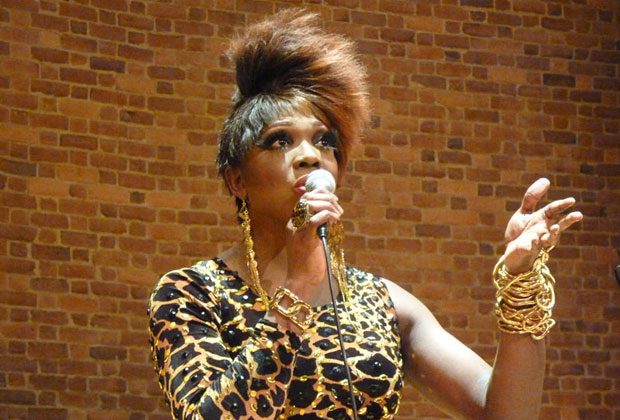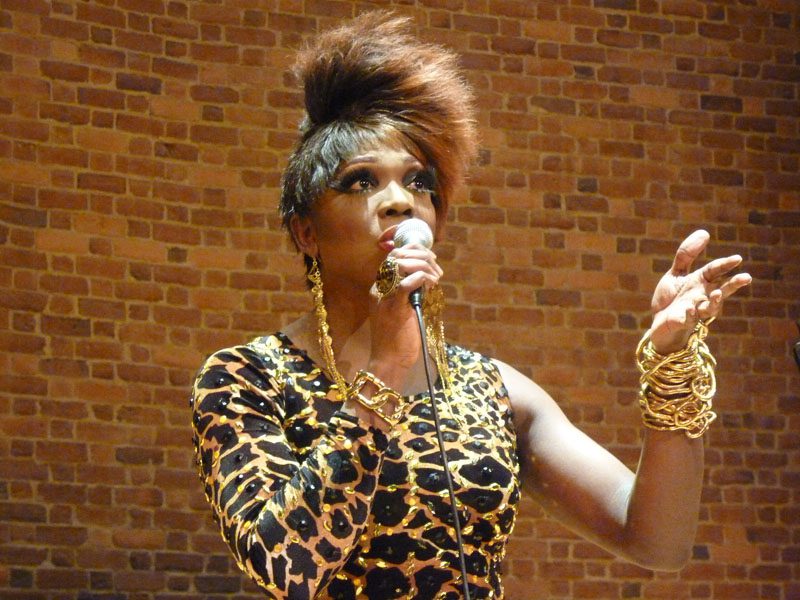Gender is performance, says professor

What does it mean to be male or female?
In a Thursday CLP titled “Exploring Gender Performance” students were invited to explore the issue with philosophy professor Carmela Epright, Ph.D, and Bebe Zahara Benet, a drag queen performer.
The lecture and performance was sponsored by Encouraging Respect of Sexualities (EROS).
Benet was winner of the first season of RuPaul’s Drag Race, a reality show that documents the lives of several drag queens as they compete to become “America’s next drag superstar.”
“The CLP is about challenging what many see as traditional gender roles,” said Rene Travis, vice president of EROS. “Drag queens are an ideal example because, while they embody what many see as a stereotypical idea of women, at the same time they are breaking other idealized gender norms.”
For Travis, this made Benet an ideal speaker for the event.
“We were trying to bring in someone approachable and recognizable but who would also challenge Furman students to think outside the box,” she said.
During her presentation, Dr. Epright discussed the concept of gender performativity and its connection to broader social ideas about gender and how this impacts our daily social interactions.
“Gender is a performance,” she says. “We are constantly practicing gender and being judged on how we practice it.”
These social norms, says Dr. Epright, spark the controversy surrounding those who dare to blur the divide between male and female, namely, drag queens.
“I can remember in 2007 receiving death threats for having the Kinsey Sicks, a famous drag troupe, perform on campus,” she said.
While Thursday’s event proved to be far less controversial than the one seven years ago, this did not stop Benet from stirring things up with the 350 member audience that packed the seats of Daniel Recital Hall. After her initial lip-synced dance routine, Benet engaged the audience with some playful taunting—a typical component of drag shows.
“Her performance was fantastic and I think she really challenged a lot of people to step outside their comfort zones,” said EROS president Mary Catherine Wilder.
However, Benet’s performance was not all light-hearted entertainment. She also discussed the many challenges that come with living outside of accepted social norms. Born Nea Marshall Kudi in the republic of Cameroon in western Africa, Benet recalled the struggle to conform to her culture’s traditional customs concerning gender and masculinity.
“I tried for many years to be what I was expected to be,” she said. “I was miserable.”
According to Benet, it was after moving to the United States and being introduced to the world of drag performance that she found an escape from the rigid cultural expectations of her homeland.
“There is so much power in drag,” says Benet. “You can dress up and be whoever you want to be.”
Benet concluded her presentation with one final message to the audience.
“Just be who you are.”
